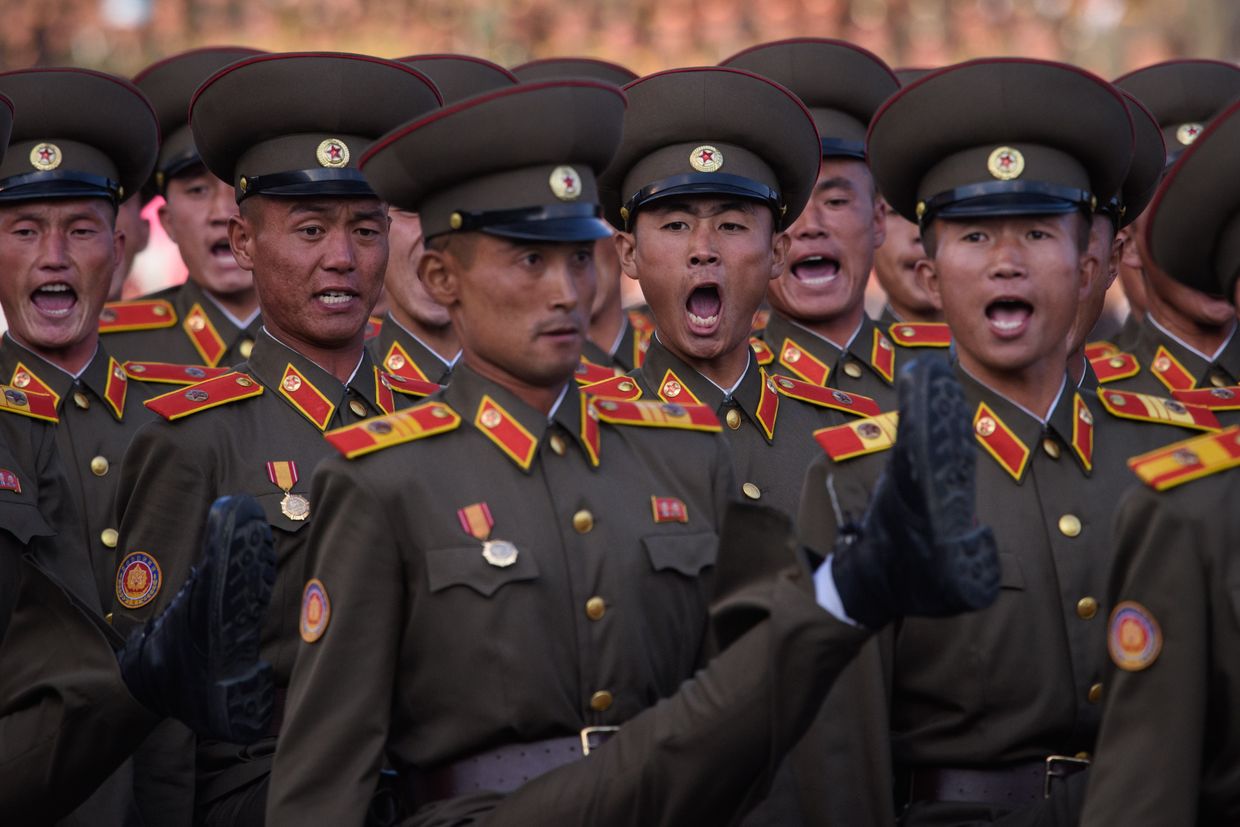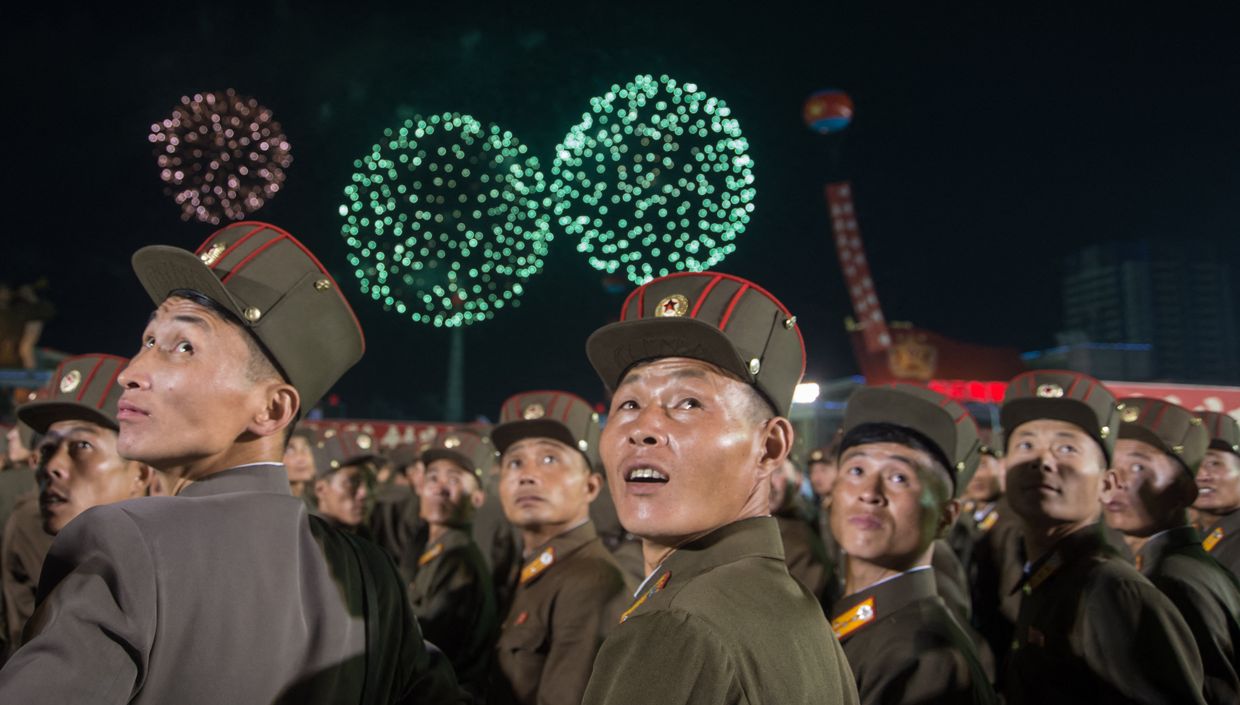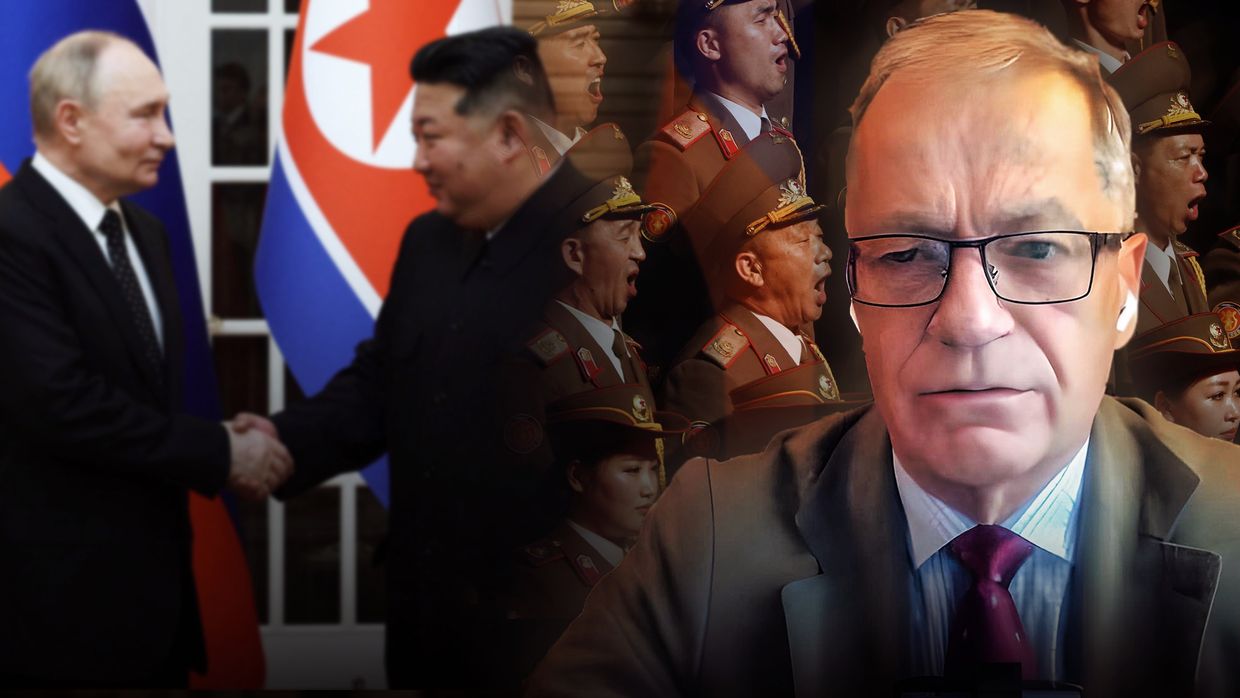South Korea supplying weapons to Ukraine directly unlikely given legal hurdles, experts say

Visitors watch South Korea's K9 155mm self-propelled howitzer during a ceremony to mark the 76th anniversary of Korea Armed Forces Day at Seoul Air Base in Seongnam on October 1, 2024 ( Jung Yeon-je / AFP)
South Korea has hinted it could change its long-standing stance on not providing Ukraine directly with weapons in light of the dramatic escalation of North Korea's role in Russia's full-scale invasion.
So far, Seoul has only provided humanitarian and non-lethal military aid to Kyiv, but on Oct. 22, a South Korean government source suggested this could change, and the direct supply of arms was being considered.
Earlier, on Oct. 18, South Korea said that Pyongyang's soldiers being sent to Russia was a "grave security threat" and warned that it would "respond by mobilizing all available means in cooperation with the international community."
However, experts who spoke to the Kyiv Independent say South Korea's position is unlikely to change soon, as Seoul is restricted by its own legislation.
"There's always a bit of posturing that happens in the immediate aftermath of what North Korea is doing, but the actual ability to implement this is very difficult, "Jenny Town, senior fellow at the Stimson Center and director of Stimson's Korea Program and 38 North, told the Kyiv Independent.
South Korea hints at changes
South Korean law prohibits the exporting of weapons to active conflict zones.
In June, Seoul said it would reconsider this in relation to Ukraine after Russian President Vladimir Putin and North Korean dictator Kim Jong-Un signed a security agreement in Pyongyang.
Publicly, nothing came of this statement, but the recent news of North Korean troops being sent to Russia has raised the issue once again.
Citing a South Korean government source, the Yonhap agency reported on Oct. 22 that Seoul is considering sending a team of personnel to Ukraine to monitor North Korean troops. It also said the government is reportedly considering providing Ukraine with armed support.
"While watching signs of North Korea-Russia military cooperation, the response measures will be taken in steps," the source told Yonhap.
But the source said that sending defensive weapons will be prioritized over lethal arms, adding that even if lethal weapons are provided, South Korea will first consider providing them to Kyiv indirectly.


Town said that despite Seoul's words, supplying Ukraine directly with weaponry isn't even an option currently.
"It's been a consistent stance because it is law. It's not just a policy choice," she said, adding: "The president can't just say, 'Hey, I've changed my mind; here's what we're going to do now,' it really does require actual legislation to be passed."
And currently, that seems very unlikely. South Korean President Yoon Suk Yeol's approval rating this week dropped to 24.1 percent, the lowest level since he took office in 2022.
Town said he lacks the bipartisan support required to pass legislation because he is in "such a weak position right now."
"If there was going to be greater military assistance to Ukraine, it's more likely to be by increasing indirect channels," Town adds.
South Korea's indirect supplies
South Korea has a thriving arms industry. And while much of this is fueled by the domestic need to defend against its ever-belligerent northern neighbor, it's also one of the world's biggest exporters of weapons.
According to the Stockholm International Peace Research Institute, South Korea currently ranks 10th in terms of arms exports.
In particular, South Korea has a lot of 155mm artillery shells, which Ukraine desperately needs.
"In terms of what South Korea could provide directly, the biggest medium-term impact would be ammunition because basically the West is tapped out," Vann Van Diepen, a consultant and former U.S. State Department official, told the Kyiv Independent.
According to Ukrainian officials, just holding the front lines requires 75,000 a month, while fending off another major Russian offensive could double this number.
Meanwhile, Russia is firing around 300,000 a month, with North Korea reportedly supplying half of the sum.
South Korea has long been under some pressure from Ukraine's Western allies to send 155mm shells to Ukraine to help fight off Russia's full-scale invasion.
But restricted by its laws, Seoul had to devise a workaround to contribute.
It has done this by indirectly supplying Ukraine with ammunition, in particular 155mm artillery shells, via the U.S. The U.S. sends Ukraine shells from its stockpiles, and South Korea sends the U.S. replacements.
But the U.S. and European nations have struggled to ramp up production to the rates required to fuel the biggest land war in Europe since World War II, meaning the limiting factor isn't how many South Korea can send but how many other countries can produce.
What else could South Korea provide indirectly?
Van Diepen said that while South Korea produces a range of weapons that would be on Ukraine's wishlist, there are difficulties and challenges with supplying them, even indirectly.
South Korea produces the K9 Thunder self-propelled 155 mm howitzer, though this would require another arrangement with a third country, and there is currently no talk of this.
The same applies to the K239 multiple launch rocket system (MLRS), considered to be at least on a par with the U.S.-made HIMARS system, which was a game-changer for Ukraine when they first arrived in the summer of 2022, allowing Kyiv to target Russian forces in occupied territories far more accurately than they had previously.

"Then there are tanks," he said, adding: "But there's the issue of how much you'd be depriving South Korea of its own inventory, and then there are issues of training, support and logistics.
"You can't just send the tanks and say, 'OK guys, hop in and let's go.'"
South Korea also produces several types of cruise and ballistic missiles, but these would come up against the same issues Ukraine is currently facing with those already supplied by Western allies.
Ukraine's Western partners continue to refuse to authorize deep strikes in Russia with long-range missiles such as ATACMS and Storm Shadows.
"South Korea would likely have the same concerns the U.S. has in terms of escalating things, they'll be looking over one shoulder in terms of their future relationship with Russia," Van Diepen said, adding: "There are probably lines that they won't want to cross."
"So ammunition and artillery would be the most likely."












